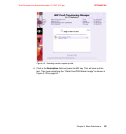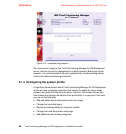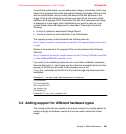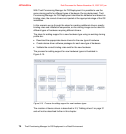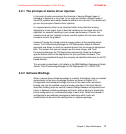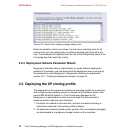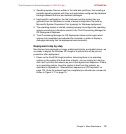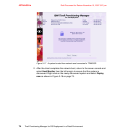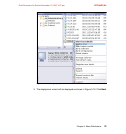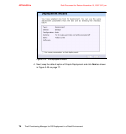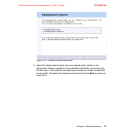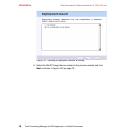Chapter 3. Mass-Distributions 71
Draft Document for Review November 15, 2007 3:27 pm 4372ch03.fm
3.2.1 The principle of device driver injection
In the point-of-sales environment the chances of having different types of
hardware to deploy to is very high. In our case we had four different types of
SurePOS systems each setup needed a different set of drivers. This section will
go over the principle of device driver injection.
If a required device driver is not contained within the profile that is being
deployed to a new target, then at best the hardware on the target will not be
exploited, for example resulting in poor screen performance. At worst, the
network cards will not initialize correctly, and the system will not have network
access to correct the problem.
Instead of having the cloned machine image contain all the possible device
drivers, Tivoli Provisioning Manager for OS Deployment adopts a different
approach and allows to inject the required drivers into the image at deployment
time. This means that you can always use the same image, and Tivoli
Provisioning Manager for OS Deployment dynamically binds the hardware
specific device driver to the deployment for your particular hardware. This
process is accomplished through the uniquely set identifiers that exist on all PCI
based devices.
This principle is described in full details in the IBM RedBook Deployment Guide
Series: Tivoli Provisioning Manager for OS Deployment V5.1, SG24-7397.
3.2.2 Software Bindings
When a device driver software package is created, the binding rules are created
automatically at the time of package creation as shown in Figure 3-16.
Configuration and software bindings that are not the result of an automatic
binding rule can be modified using the binding interface in the Host Monitor.
Automatic binding rules are used to create bindings between configuration and
hosts, or between software packages and hosts, without having to specifically
bind a configuration or a software package to each host. Rules are created in
configurations and software packages to determine which hosts will
automatically be bound to the configuration or software package.



